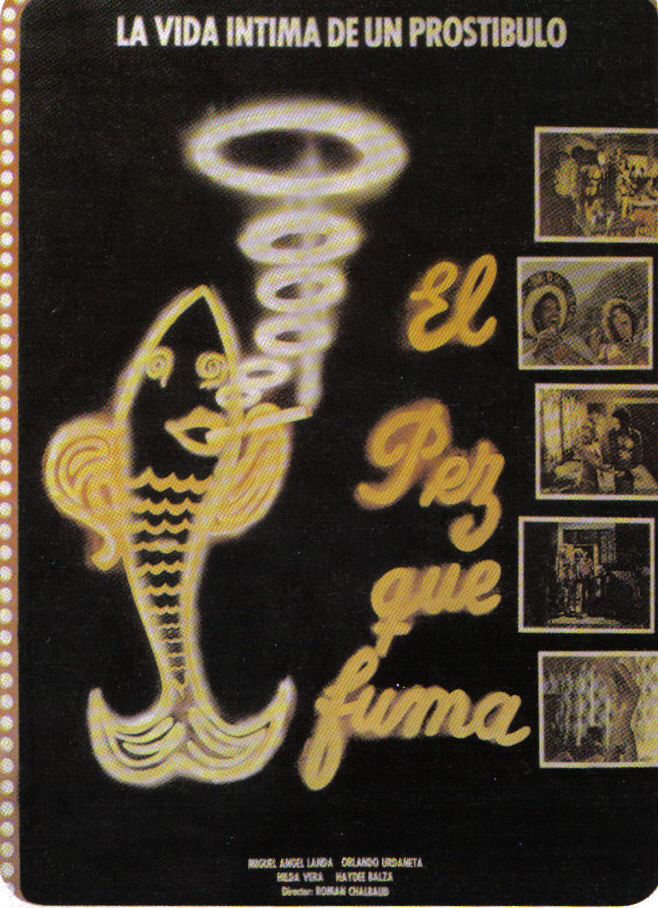- El Pez que Fuma
Infobox Film
name = El Pez que Fuma

|100px
director =Román Chalbaud
producer =Román Chalbaud
writer =Román Chalbaud José Ignacio Cabrujas
starring =Miguel Angel Landa Orlando Urdaneta Hilda Vera Hayde Balza
released =1977
runtime = 115 min.
country =Venezuela
language = SpanishConsidered by many to represent a peak inVenezuelan film-making, “El Pez que Fuma” is the name of abrothel inLa Guaira , where the story takes place.
Made in1977 during the "Golden Age" of the Venezuelan cinema, it is a tale of power, represented by the owner of the business, and the way of power is passed down from generation to generation, repeating the same pattern time and again: the one who rises to power has their moment of glory, and then is pushed aside in turn.La Garza is the name of the owner of the business, and, although she is the one who is really in control of the brothel and its workers, she allows her lovers to believe that they in some way are running things, including herself by giving them control over the administration of the Pez que Fuma, the money and anything else they want.
Three men are competing for the love of La Garza, and thereby, control of the Pez que Fuma: first Tobias, who is supplanted by Dimas, the second, who in turn is pushed out by Jairo, the third.They all follow more or less the same methods to get what they want (except Tobias, being the first). First, they arrive at the brothel as nobodies – no money, looking for work and help. La Garza and her man of the moment give them a job, and once inside the business, they win their confidence.
But La Garza’s last affair, with Jairo, marks a profound change in the story, as Dimas, the previous lover, doesn’t accept the loss of everything. Managing to get out of jail, he tries to kill Jairo, but instead kills La Garza, that sends him back to prison for good. Jairo remains in absolute control of the brothel, with one of the young prostitutes, Selva Maria, who takes La Garza’s place. And so, with the death of the old owner and the imprisonment of Dimas, the new, young heirs to power take possession.
The story, although reflects a social reality of Venezuela, and doesn’t leave out what have become typical ingredients of the Venezuela national cinema, the slums, prostitutes, nudity, bad language, delinquency, does not either make them its prime players at the centre of the story. It also manages incorporate novel elements, such as the symbolism of the music that accompanies the images and puts across the feelings of the protagonists as much as the situations themselves, besides representing a very typical aspect of the Venezuelan culture.
Prizes
*Municipal film prize for best movie and best actress (
1977 )
*Catalina de Oro at the Cartagena (Colombia ) film festival (1979 )
*Prize for best movie at the Mérida first film festival, (1980 )Source
* [http://www.alohacriticon.com/elcriticon/article1000.html?topic=4 Translation of Aloha Criticon ]
See also
*
Venezuela
*Venezuelan culture
Wikimedia Foundation. 2010.
